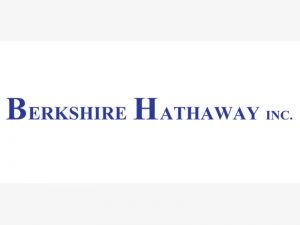MLMIC Completes Demutualization, Acquisition by Berkshire Hathaway

MLMIC Insurance Co. announced last month the completion of its conversion from a property-and-casualty mutual insurance company to a property-and-casualty stock insurance company and the finalization of its $2.5 billion acquisition by National Indemnity Co., a subsidiary of Berkshire Hathaway Inc.
The conversion and acquisition followed a September 6 approval by the Superintendent of the New York State Department of Financial Services and a September 14 vote of MLMIC policyholders with policies in effect on July 14, 2016. The cash consideration resulting from the conversion will be paid out to eligible policyholders — policyholders with policies in effect from July 15, 2013, through July 14, 2016 — or their designees as promptly as practicable, according to the company.
As a subsidiary of Berkshire Hathaway, MLMIC will have enhanced capacity and financial strength to continue serving New York State physicians, hospitals and dentists. MLMIC remains the largest underwriter of medical professional liability insurance in New York and continues to be a New York‐focused medical malpractice writer regulated by New York State. The same Board of Directors and staff that have served the market for several decades will operate it.
“No one will see any difference [in day-to-day operations],” said Berkshire Hathaway chief executive Warren Buffett, during a livestreamed conversation between himself and James Reed, MD, MLMIC chairman of the board, from Berkshire Hathaway’s Omaha, Neb., headquarters on October 17. “The one thing that we will do is manage [MLMIC’s] investments.”
Reed highlighted how Berkshire Hathaway’s deep resources position MLMIC to address the challenging risks of the New York market as well as the hyper-evolving American healthcare delivery system.
“The tremendous financial resources of Berkshire Hathaway [lets us] assure physicians in New York that if they’re insured with MLMIC, there’s nothing that could come at us that we wouldn’t have the resources to deal with,” he said. “And the resources will allow us to be much more innovative in the way we approach malpractice insurance in the future.”
Reed pointed to the consolidation within the healthcare delivery system as one of the particularly pressing challenges currently facing the medical professional liability insurance industry that MLMIC wants to proactively address.
“At MLMIC, we know we’re going to have to be innovative with the consolidation that’s occurring — physicians coming together to form larger groups, health systems coming together, large groups coming together with health systems,” Reed said. “We need to be more innovative on the medical malpractice insurance side, and that’s exactly what we want to do as part of Berkshire Hathaway with those resources. We have a number of innovative ideas [for working] with some of these larger groups [that] we just couldn’t do in the past.”
In addition to National Indemnity Co. and MLMIC, Berkshire Hathaway also owns MedPro Group, which provides medical professional liability coverage in New York through its subsidiary risk retention group, MedPro RRG. And both Buffett and Reed view the intra-company competition as a benefit.
“We like the competition,” Buffett said. “For example, in workers compensation insurance, we have three different [companies] that have somewhat different areas of expertise. We have totally independent organizations that are out there calling on the same firms, trying to get their worker’s compensation business. Competition is fine.”
“We’re also hoping to be able to collaborate [with other Berkshire Hathaway companies operating in medical liability] because one option to consolidation in healthcare is collaboration,” Reed said. “The difficulty in doing that is always a legal one, but by being part of a single company like Berkshire Hathaway, we think particularly in the areas of working on patient safety, analytics and so forth, we can collaborate some. While each company pursues its own direction, some of those things that are common across the malpractice insurers within Berkshire Hathaway, we will be able to bring together and leverage that kind of capability to improve patient safety and, therefore, better outcomes from the malpractice standpoint.”
This information provided by Michael Matray of the Medical Liability Monitor.

